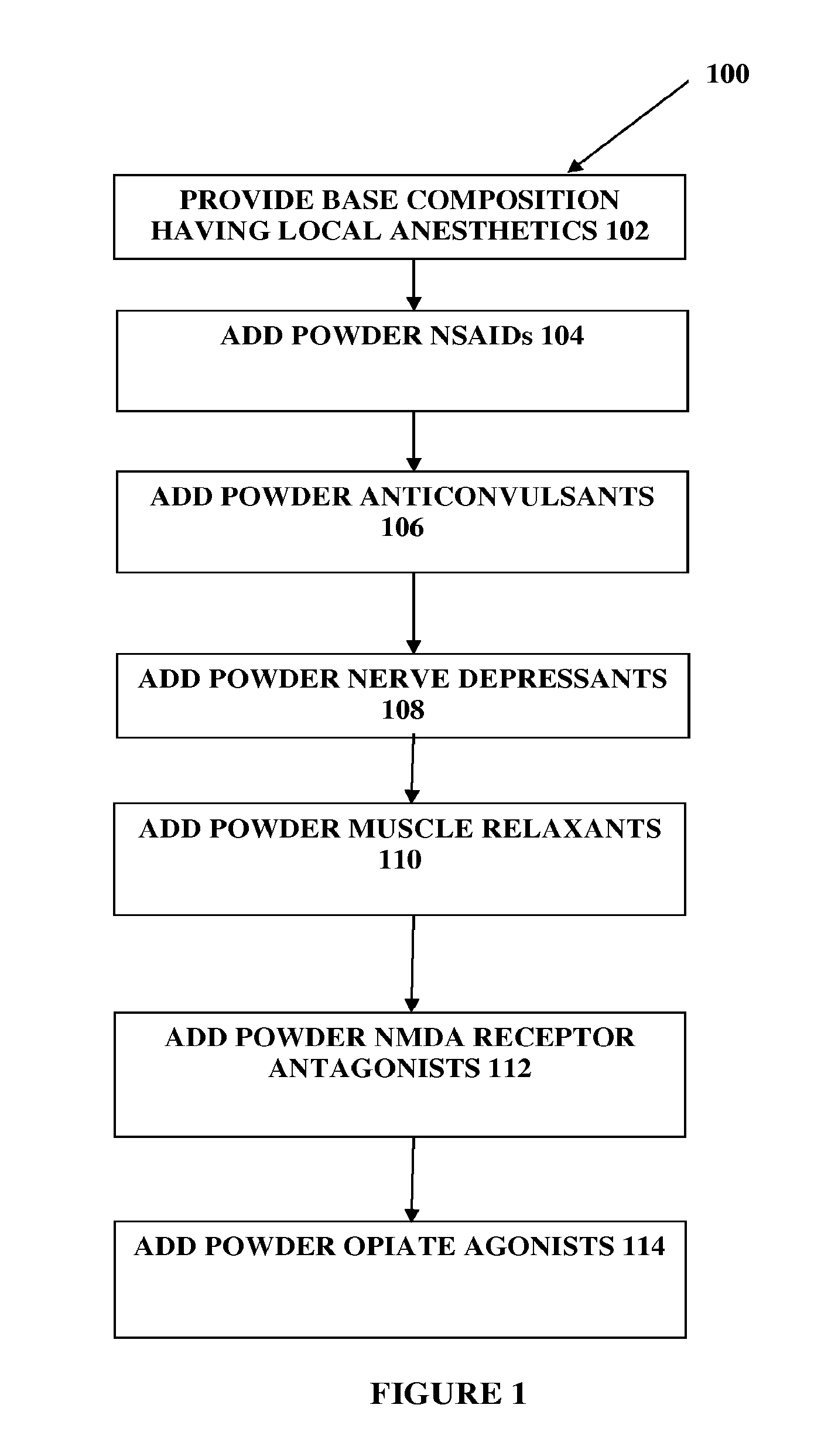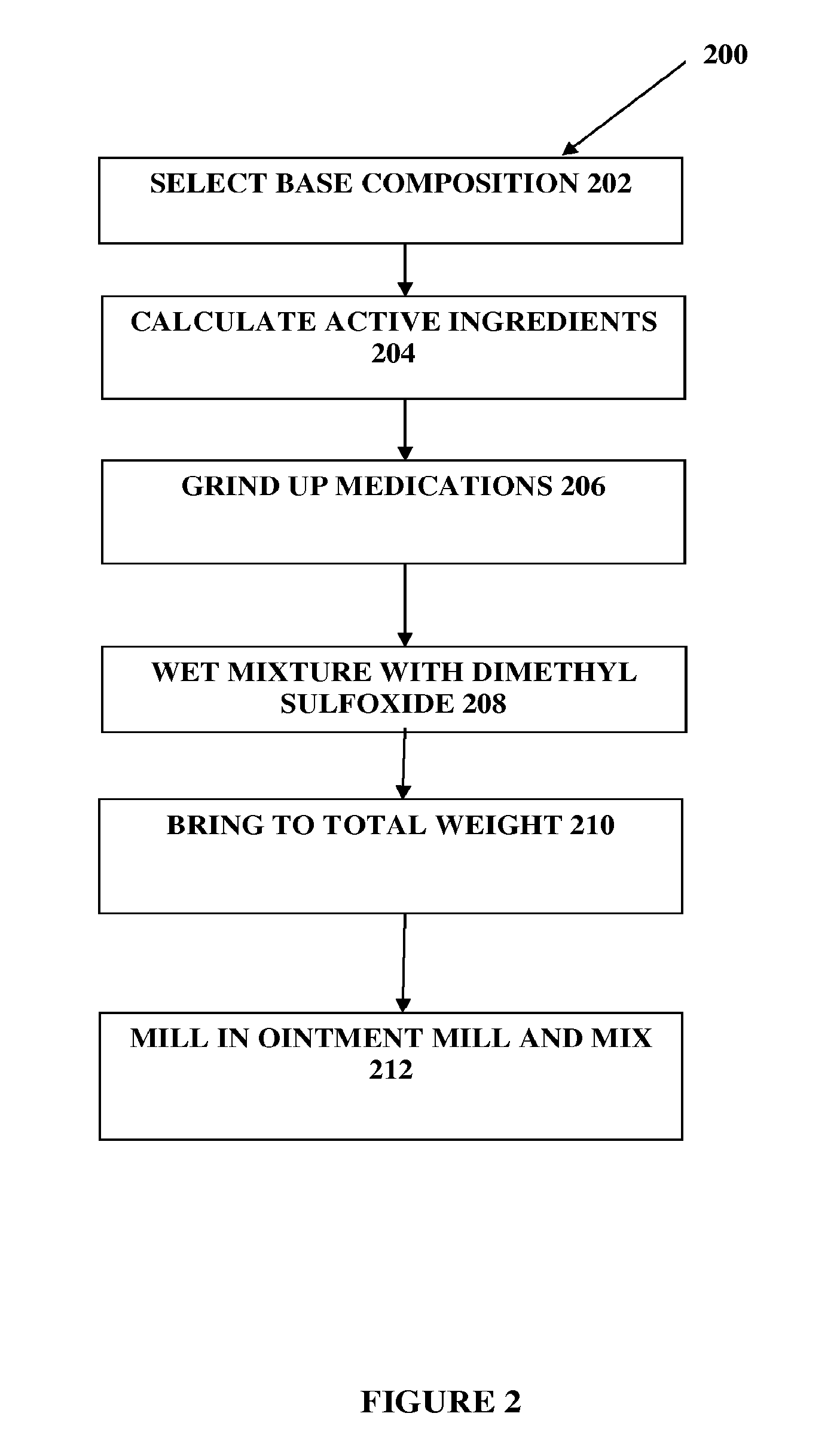Composition and method for compounded therapy
a compounding and therapy technology, applied in the field of compounding therapies, can solve the problems of limited shelf life, ineffective manufacturing methods of transdermal creams, and inability to meet the needs of patients,
- Summary
- Abstract
- Description
- Claims
- Application Information
AI Technical Summary
Benefits of technology
Problems solved by technology
Method used
Image
Examples
Embodiment Construction
[0014]The present embodiments may relate to topically delivered compounded medications for treatment of various ailments, such as pain, osteoarthritis, epilepsy, inflammation, muscle fatigue, spasms, and / or other ailments. In one aspect, a transdermal cream for the effective administration of multiple medications simultaneously for one or more ailments may be provided. The transdermal cream may include low concentrations of lidocaine, prilocaine, meloxicam, lamotrigine and / or topiramate, and other active ingredients.
[0015]Alternatively, the transdermal cream may include a base having both lidocaine and prilocaine, and to which is added a fine powder of one or more medications. The medication in fine powder form may be generated from grinding up tablets of NSAIDs (Non-Steroidal Anti-Inflammatory Drugs), anticonvulsants, nerve depressants, muscle relaxants, NMDA (N-Methyl-D-aspartate) receptor antagonists, opiate or opioid agonists, antidepressants, and / or other active agents. The fin...
PUM
| Property | Measurement | Unit |
|---|---|---|
| wetting | aaaaa | aaaaa |
| weight | aaaaa | aaaaa |
| concentrations | aaaaa | aaaaa |
Abstract
Description
Claims
Application Information
 Login to View More
Login to View More - R&D
- Intellectual Property
- Life Sciences
- Materials
- Tech Scout
- Unparalleled Data Quality
- Higher Quality Content
- 60% Fewer Hallucinations
Browse by: Latest US Patents, China's latest patents, Technical Efficacy Thesaurus, Application Domain, Technology Topic, Popular Technical Reports.
© 2025 PatSnap. All rights reserved.Legal|Privacy policy|Modern Slavery Act Transparency Statement|Sitemap|About US| Contact US: help@patsnap.com


